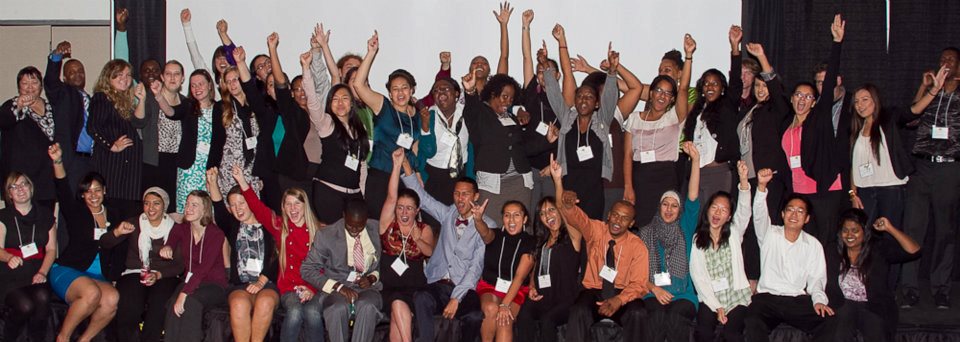Our Executive Leader’s Perspective interview this week is with Shannon Deegan, Director of People Operations, Central Staffing, and Business Development at Google.
As a leader within Google, what are the top five leadership qualities that you search for in potential student leaders?
We look for a diverse range of qualities in our student candidates, so this is definitely not a hard and fast list, but if I was to name five leadership qualities we look for, I would pick:
- Demonstrated leadership and setting/achieving big goals
- A keen sense of when to lead and when to follow
- Integrity
- Success dealing with adversity and challenges
- Diverse skill sets and breadth of knowledge
What are the greatest words of wisdom you have ever received in your career about leadership?
When I first started out, the greatest words of wisdom I received were "always act with integrity, never sacrifice your values and be true to who you are as a person." One of the best things about working at Google is that I get to be the same person at work as I am at home. People are happiest in their careers when they can be their true selves and they are doing the right thing. Find companies and roles that do that for you, and feel comfortable pushing back if something ever goes against your core values.
If a student desires to become a future executive one day after graduation, what leadership qualities should they focus their efforts on right now?
Being well-rounded is one of the best things you can do to become a better leader. Try as many things as you can to find out what you love to do, build up a diverse skillset, make new connections and step outside of your comfort zone. As you diversify your resume, you'll also learn to work well with many different types of people and communication styles.
It's also essential to understand how your company and industry work. Don't get siloed in your role. For example, if you work in Sales at Google, you should know how the engineering behind the advertising works, how our products work, and understand our overall business goals. Having this breadth of knowledge makes you a more valuable and versatile contributor and a better future leader.
What leader has had the greatest impact on your life? Please tell me why this leader had such a great impact on your life?
First and foremost, I had amazing parents and family. Outside the home, my hockey coaches were the primary leaders in my life. One college coach in particular pushed me to stretch myself on and off the ice. He expected us to be students first and athletes second, and encouraged us to meet people outside the team to make strong connections across campus. These ties have been invaluable personally and professionally, and his support helped me start a diverse and fulfilling career path.
How do you see leadership changing in the next 10-15 years?
I think we're already seeing a shift in how people view and experience the workplace. It wasn't long ago that people had totally separate work personalities and personal lives. I see that going away -- more and more, people want to be themselves all the time. We want to work with people we like and respect. The next generation of leaders will need to be better at bringing their true selves into the workplace and earning the respect of their teams. Leadership will be more about relationships, influence and trust and less about telling people what to do. I also think that leaders will have more responsibility to make sure their teams are happy and have the tools they need to be successful.
As a leader in your area of expertise, what has been the greatest leadership challenge that you have been required to overcome in order to succeed in your profession?
My greatest challenge was becoming a Human Resources leader at Google with no previous HR background. I wanted to build trust and bring value to my team quickly, so I had to learn fast. As much as I wanted to lead, I found the best way to get up to speed was to be comfortable relying on them as the experts. It actually helped us form strong bonds and enabled them to make important decisions.
What final word of advice do you have for graduating students who desire to enter your area of expertise?
Don't worry if you're not sure what career you want yet. This is the perfect opportunity for you to learn new things and build up a diverse skill set. Go after the things that interest you right now. Keep exploring, learning and growing as much as you can. I see a lot of young people put too much pressure on themselves -- your first job may not be your dream role, but it will open up other doors. You shouldn't sweat where to work right after college. It is the first step on a long road, you'll have lots of additional opportunities and decisions as you go!



